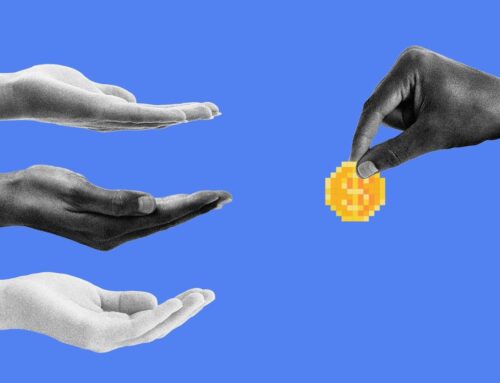Anaheim Ducks Owner Henry Samueli Is Investing $1 Billion In City-Owned Arena
April 29, 2025
Anaheim Arena first opened its doors in June 1993 with a sold-out Barry Manilow concert. At the time, it was a state-of-the-art facility with a price tag to match: $123 million. That fall, it became home to the NHL’s newest expansion team, the Mighty Ducks of Anaheim.
But much has changed in the three decades since. Now the building is called the Honda Center, the team is named the Anaheim Ducks, and the last premier musical act to come to town was Justin Timberlake in January.
The NHL’s fourth-oldest arena is also starting to show its age. Fans on the upper concourse have to stand in long lines waiting for concessions at the few available vendors, and while four loading docks may have been plenty for Manilow, Timberlake had 25 semitrailers full of equipment (not counting tour buses).
Those are concerning details for microchip billionaire Henry Samueli, who bought the Ducks in 2005 from their original owner, the Walt Disney Company, and is planning for the Honda Center to be the centerpiece of a 100-acre entertainment district called OCVibe that he is investing $4 billion into developing.
To ensure the arena lives up to the billing, Samueli is investing an additional $1 billion into major renovations for the Honda Center, Mayor Ashleigh Aitken of Anaheim will announce Tuesday.
“They’re pretty ecstatic that we’re putting money, which we’re not obligated to do, back into that building to extend the usefulness and the life of it,” says Bill Foltz, CEO of OC Sports & Entertainment, Samueli’s holding company. “It’s due for a major upgrade, and we think we shouldn’t wait until OCVibe is built and it’s desperately needed.”
The Ducks are one of only two major professional teams in Southern California to play in a venue owned by their hometown, along with MLB’s Padres, whose Petco Park is 70% owned by the city of San Diego and 30% by the club. Foltz says Samueli’s investment is among the largest ever by a private individual into a public facility, and the makeover will include a new five-story grand entrance, a renovation of all suites, new escalators and food options for fans in the upper bowl, and—yes—$65 million earmarked for an expansion to 25 loading docks. Construction has already begun and will run for the next three years, with the arena remaining open throughout.
With optional extensions extending beyond the current lease agreement, the Ducks could be tied to the arena until at least 2064.
“We’re going to be here for a long time,” Foltz says, “so it’s really an investment for the next 30 years.”
The project will be entirely funded by Samueli, who cofounded semiconductor manufacturer Broadcom in 1991 and made his fortune when the company went public in 1998 and eventually sold in 2016 to Singapore-based chip firm Avago for $37 billion in cash and stock. (Avago then took on the Broadcom name.)
Samueli still serves as Broadcom’s chairman and is a major shareholder. Over the past two years, as AI technology has created massive demand for the company’s chips, its stock price has more than tripled, and Samueli’s personal net worth has jumped to $19.5 billion, from $7.7 billion in 2023, according to Forbes estimates.
He and his wife, Susan, bought the Ducks from Disney for an estimated $70 million, and two years later, in 2007, the team won its first and only Stanley Cup. Even though the Ducks have now missed the NHL playoffs for seven consecutive seasons, soaring media rights payouts have pushed the team’s valuation to $1.3 billion.
Still, the Ducks ranked 26th (out of 32) on Forbes’ latest list of the NHL’s most valuable teams and were No. 29 in the league in home attendance this season.
The planned changes to the arena are expected to bring in more fans, as well as improve the Ducks’ sponsorship and premium seating options, which would be a boon as the franchise navigates a shakeup in the local media landscape that is jeopardizing tens of millions of dollars in annual revenue for hockey teams.
Under the terms of the Ducks’ latest lease, signed with the city of Anaheim in 2018, Samueli’s management company receives 47.5% of any arena revenue over $6 million annually, although that number is calculated after investments into facility improvements.
“We’re pouring so much money into it, it’s going to be hard for us to ever get our expenses back,” says Michael Schulman, the Ducks’ CEO and OC Sports & Entertainment’s chairman. “Most teams get the city to pay for their arenas, the reverse order. We’re not only not asking for [taxpayer] money, but we’re putting all this extra money into this project that we know we ultimately will not own.”
The real moneymaker for Samueli will be the OCVibe district, with plans for a 50,000-square-foot food hall, two live event venues, five restaurants, two hotels, a public transit station and 20 acres of parks and plazas. The construction will unfold in phases over the next four years, but the development team has already spent $1 billion in building costs and will complete a new parking garage for the arena this fall.
Once the district is complete, Foltz projects the city of Anaheim will receive $10 million annually in direct tax revenue, primarily from resort-fee-style taxes on hotel room stays, although the hotels are not expected to be completed until late 2028 or beyond. The goal is for most of the other elements to be ready by the summer of 2028, when the Honda Center will host the indoor volleyball competition for the Summer Olympics in nearby Los Angeles.
In recent years, similar entertainment districts—such as the Battery in Atlanta, the Star in Dallas and Titletown in Green Bay—have popped up around sports arenas and stadiums around the country, each hoping to capture more of fans’ spending before and after games.
What makes the OCVibe district different, aside from its size and scale, is the centrality of ownership. The Samueli family is taking on no outside investment.
“It’s really a superpower in our case because it allows us to have everything on the same system,” says Foltz. “Whenever someone comes here, we can help curate that from arrival to departure, the ability to coordinate things on the outside with the inside.”
Send me a secure tip.
Search
RECENT PRESS RELEASES
Related Post



